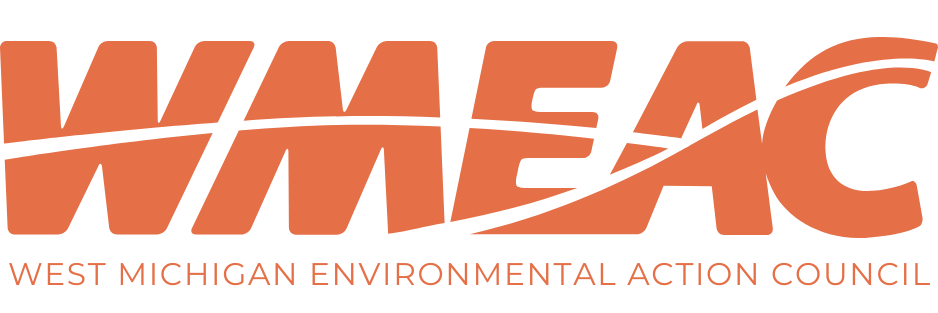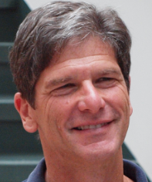By Grace Hasley, Eco-Journalism Intern for West Michigan Environmental Action Council (WMEAC).
Special thanks to Dr. Alan Steinman, Allen and Helen Hunting Research Professor at Grand Valley State University’s Annis Water Resources Institute, for sharing his expertise for this article.
If the crazy weather this summer is getting to you, you aren’t alone. A tornado shocked Kalamazoo area residents in May, and in June, a storm ripped through communities in Muskegon County, causing damage throughout the area, including devastating numerous homes in Whitehall. Scientists say July 22 this year was the hottest day ever recorded on the planet. These recent occurrences are likely not flukes. The planet is heating up and extreme weather is only one possible result.
Climate change, which includes global warming, is caused by burning fossil fuels. The gasses emitted from fossil fuel usage, such as carbon dioxide, create a greenhouse effect. Since humans have started recording carbon dioxide concentrations in the atmosphere, there have never been higher concentrations than at present, and the earth continues to warm at an increasing rate. There are also other climate change impacts, such as extended heat, drought, and changing weather patterns, sea level rise from melting glaciers, reductions in biodiversity, threats to farming and our food supply, and harm to human health from pollution and the higher extended temperatures.
How truly urgent is the issue of climate change? Dr. Alan Steinman, the Allen and Helen Hunting Research Professor at Grand Valley State University’s Annis Water Resources Institute, explained how our planet has experienced a slow increase of greenhouse gasses in the atmosphere over the past million years, but now man-made contributions are producing higher levels at a much faster rate. And it is concerning, according to Dr. Steinman. “This planet, including its living organisms and geochemistry, now has very limited time to adapt to these fast-moving changes,” he said.
We are at a crucial point in the climate change battle. Scientists have told us we need to keep the global average temperature below an increase of 1.5° Celsius, but that may have recently been exceeded, increasing the urgency of getting clean energy solutions into place. According to Tanya Cabala, WMEAC’s lakeshore outreach organizer, “We need courage and wisdom on the part of our elected officials, at all levels, who can make the tough decisions to require greenhouse gas emissions reductions as soon as it is feasible.” Who we choose as our leaders then, will have the opportunity for the next four years to implement (or not) the many necessary large-scale initiatives to begin to slow global warming.
According to Dr. Steinman, “…there is a responsibility not only on the candidate to do their homework but also on the voters…” National elections may sit in the front row of our minds, but paying attention to state legislative candidates is just as important. The significance of voting for climate-minded candidates at the local level is evident in the City of Grand Haven when its Council voted down a new gas-powered plant and the Grand Haven Sustainability & Energy Commission was formed.
Of course, what you can do in your own home is crucial as well – things like biking instead of driving your car, and using reusable grocery bags and a reusable water bottle. My personal favorite sustainable practice is avoiding single-use plastics such as grocery bags and sandwich bags and switching to reusable alternatives. According to Dr. Steinman, “…it is important for everyone to be aware of the climate-related consequences of their actions, and to do what they can to keep energy usage low without sacrificing their own health and safety.”
There is a huge amount of information available on climate change for your own learning and resources for how you can vote for good candidates.
To learn about climate change, see the following resources:
- Intergovernmental Panel on Climate Change (IPCC): a global body of scientists and experts that reviews and reports on climate change research to inform government policies.
- MI Healthy Climate Plan: Michigan’s roadmap to carbon neutrality by 2050.
- The Future We Choose: The Stubborn Optimist’s Guide to the Climate Crisis, written by Christiana Figueres and Tom Rivett-Carnac: key architects of the Paris Agreement on climate change present a future where we don’t act and suffer severe consequences, and another where we take bold steps to create a sustainable, resilient world, and ideas on a path forward.
For voting information, check out these resources:
- Ballotpedia
- Vote Smart
- Michigan League of Conservation Voters 2024 Candidate Endorsements
- Sierra Club Michigan Chapter 2024 Candidate Endorsements
Visit www.wmeac.org, for more information about WMEAC and its initiatives.



